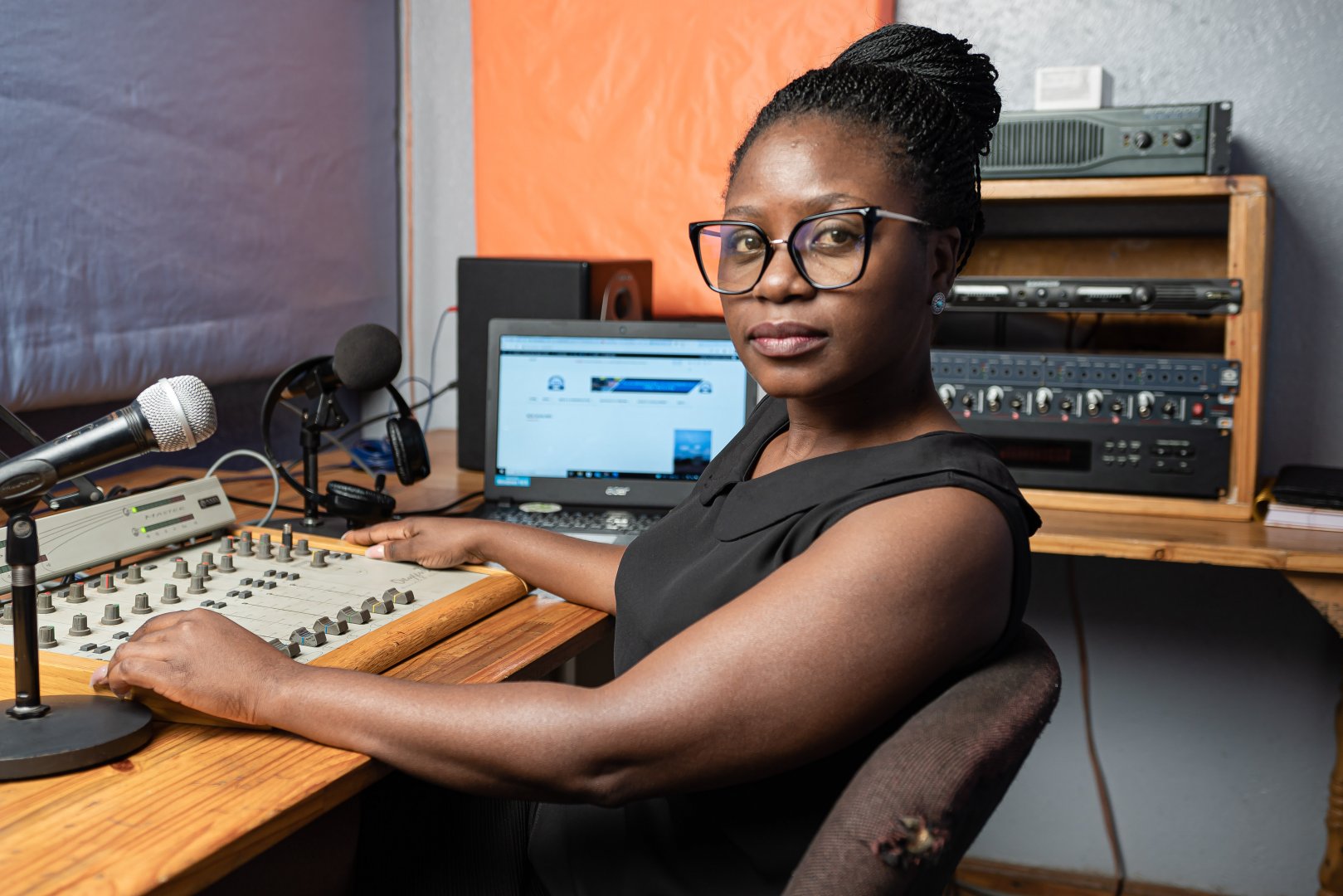
How a community radio station is standing up against bribes targeting pregnant women
At a Zimbabwean hospital, pregnant women are forced to pay bribes to give birth. A community radio station decided to fight the corruption in an attempt to save the lives of local women and their children.
Beauty Nyamusanguza of Epworth, a populous suburb south-eastern of Capital Harare, recalls how her niece lost her first baby during labour at a clinic in the area because they couldn’t afford a bribe the midwives demanded to help her.
Beauty recalls the fateful night with both shock and disdain: “When my pregnant niece’s water broke, we rushed to Overspill clinic for help. On arrival the nurses made it clear that without being paid a bribe of US $10 they were not going to do anything. This was despite having paid the mandatory maternity fees months earlier in preparation for a day like this.”
According to Beauty during the negotiation, whinging in pain and calling for help, the niece gave birth on the bench and tragically the baby dropped to the floor and died.
“It was like a horror movie,” she recalls. “The baby dropped to the floor and all I could do was to scream while the nurses looked at me as if nothing had happened. The baby died just like that for US $10 that we could not afford because we are a poor family.”
Expectant mothers in Zimbabwe pay US $25 maternity fees to be assisted at times of delivery but without paying a bribe, which has a moniker-“drink money”, often one will not be attended to.
The widely reported issue has left many in a fix, particularly pregnant women who will be due for delivery. There are reports of victims who have suffered stillbirth or other birth-related complications after they were not promptly attended to.

Radio to the rescue
Last year, the partly Fojo IMS international supported Community Radio Harare (CORAH) station exposed the practice forcing the elected Councillor of the area to act.
CORAH is a civic rights lobby & advocacy organisation that uses online and offline innovative, audio/radio programmes, community – based and alternative media platforms to promote civic engagement, hold local/national authorities accountable on service delivery and governance issues.
Nonhlanhla Ngwenya, CORAH’s Programme coordinator and editor speaking on the story said: “We first heard of this story through our community structures. One of our citizen journalists tipped us of the corruption that was happening at Overspill Clinic in Epworth. Pregnant women were being forced to pay a bribe of US $10 up to US $25 just to be attended to. We did short videos and podcast and uploaded them on our Facebook pages, and this went viral. The Councillor from the community approached us over this issue.”

IMS-Fojo international is supporting CORAH in a project aimed at promoting women participation in local governance and developmental issues.
“We have selected about 40 women from Epworth we have trained on how to speak out, exercise the freedom of expression and how to be confident and how to use social media to whistle blow to make sure issues like these are never buried in the cracks of corruption,” Nonhlanhla said.
Home births now popular
Linda Chihomba wipes sweat off her forehead before she speaks: “My first baby died at Dombo hospital. He dies in my womb. I was told he had swallowed stool but nobody could help me because I could not afford the US $10 that was needed to make a nurse do her job. I am pregnant again and this time I will give birth at a house of an older woman (untrained midwife) who has helped many. She charges only US $3 to do this. I can’t afford to pay a nurse.”
Backyard midwives, who are essentially informal helpers in childbirth, are growing in number as Zimbabwe’s health care shortfall worsens. They charge low fees – if at all – and provide an essential service, as their growing workloads show.
Local nurses have been calling for the government to capacitate health workers as part of measures to reduce the massive brain drain that has seen hundreds of health professionals leaving the country for greener pastures.
Peter Nyapetwa, Epworth Residents Development Association Chairman said: “The CORAH story helped us a lot because there was change in the attitude of the health workers and fear to ask for bribes. However, we still hear of cases of similar status from our community sources. It is critical that stories like this one be kept alive. The media is critical and very much a part of mending our communities.”




